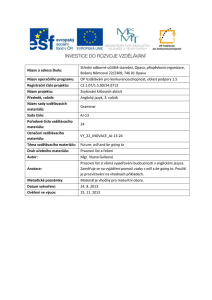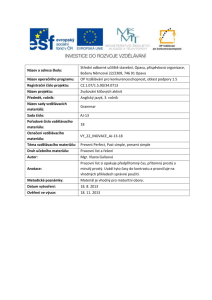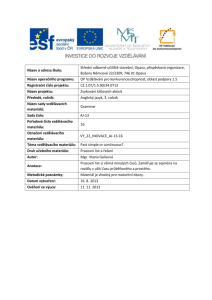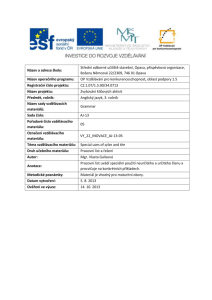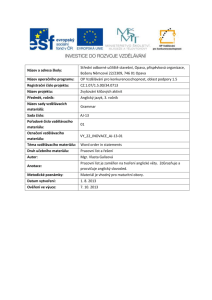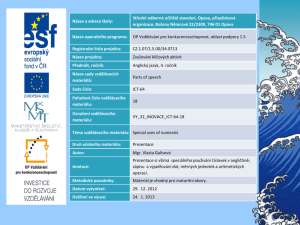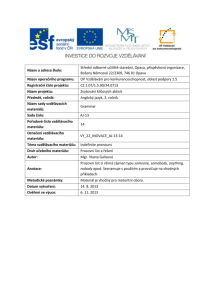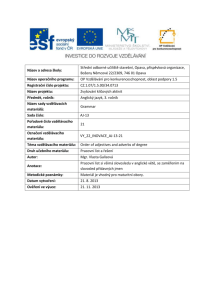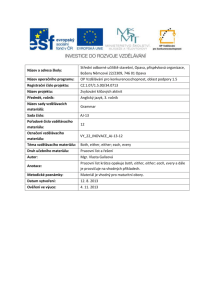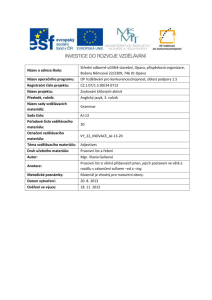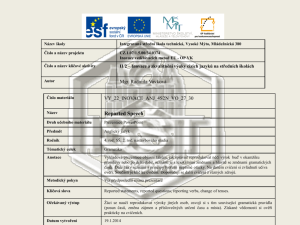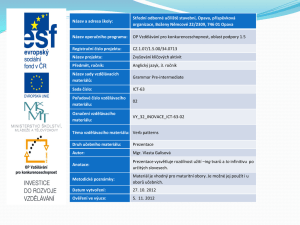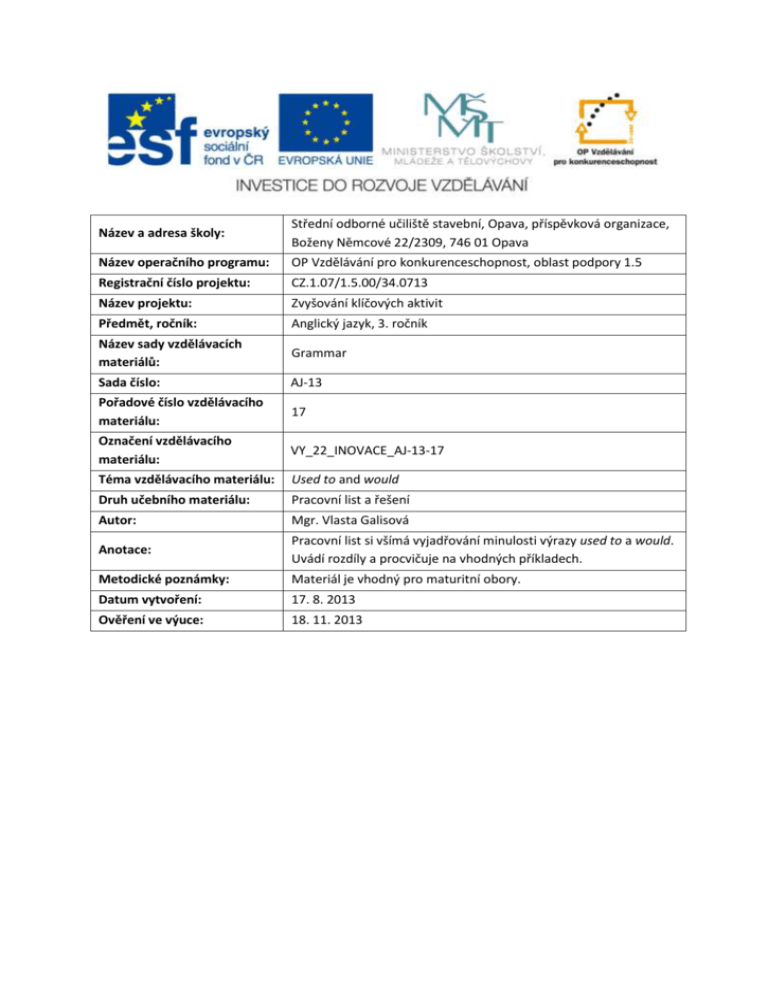
Název a adresa školy:
Střední odborné učiliště stavební, Opava, příspěvková organizace,
Boženy Němcové 22/2309, 746 01 Opava
Název operačního programu:
OP Vzdělávání pro konkurenceschopnost, oblast podpory 1.5
Registrační číslo projektu:
CZ.1.07/1.5.00/34.0713
Název projektu:
Zvyšování klíčových aktivit
Předmět, ročník:
Anglický jazyk, 3. ročník
Název sady vzdělávacích
materiálů:
Grammar
Sada číslo:
AJ-13
Pořadové číslo vzdělávacího
materiálu:
17
Označení vzdělávacího
materiálu:
VY_22_INOVACE_AJ-13-17
Téma vzdělávacího materiálu:
Used to and would
Druh učebního materiálu:
Pracovní list a řešení
Autor:
Mgr. Vlasta Galisová
Anotace:
Pracovní list si všímá vyjadřování minulosti výrazy used to a would.
Uvádí rozdíly a procvičuje na vhodných příkladech.
Metodické poznámky:
Materiál je vhodný pro maturitní obory.
Datum vytvoření:
17. 8. 2013
Ověření ve výuce:
18. 11. 2013
Review:
Used to + infinitive = to talk about regular past action that don´t happen now
or to talk about past situations that are no longer true.
There used to be a cinema.(= but now there is not)
He didn´t use to smoke. (= but now he is a smoker).
Did he use to smoke? No, he didn´t.
Would + infinitive = to talk about regular past actions that do not happen
now. Would is used only for past action, not situations.
When he was younger, he used to go on very difficult expeditions and he would
take a risk.
!!!France would have a king.!!! France used to have a king.
Used to or past simple?
We use used to, not the past simple, when we want to amphasise a difference
between the past and the present.
My brother works in a factory now but he used to work in a big shop.
Practice:
1. Choose the correct words in italics. In two sentences, both answers
are possible.
0 When we lived in the country, people in shops would/used to be much
friendlier.
1 When I was a child we didn´t use/weren´t used to fly – we couldn´t afford
it.
2 Do/Did used to wear a uniform in your last school?
3 When Matt was in his twenties, he used to/would play rugby every
Sunday.
4 Last week we interviewed/used to interview over twenty candidates.
5 Did you use to/Would you have dark hair when you were a girl?
6 In the nineteenth century people worked/used to work longer hours than
they do now.
2. Complete each sentence b so that it has a similar meaning to sentence
a. Use between 2 – 4 words including the word in brackets.
1 A My dad was an engineer. (be)
B My dad used to be an engineer.
2 A People did more exercise then. (do)
B People ……………………. More exercise then.
3 A We wouldn´t go to the cinema much. (used)
B we ………………………to the cinema much.
4 A Was mike in your team? (be)
B ………………………………..in your team?
5 A When I was teenager, I used to get up at 11.00. (would)
B When I was a teenager, I ………………………at 11.00.
6 A The prices weren´t so expensive in the 1990s. (never)
B The prices …………….so expensive in the 1990s.
7 A His sister always used to shout at me. (would)
B His sister ………………………at me.
8 A Jena drank coffee for breakfast every morning. (have)
B Jane ………………………coffee for breakfast.
3 Use the words in the box to write about things that have changed in
your life. Use used to/would.
holidays
music
food
friends
work
school
……………………………………………………………………………………
……………………………………………………………………………………
……………………………………………………………………………………
……………………………………………………………………………………
……………………………………………………………………………………
……………………………………………………………………………………
……………………………………………………………………………………
……………………………………………………………………………………
Key:
Ex. 1
1 didn´t use 2 Did 3 used to/would
6 worked/used to work
4 interviewed
5 did you used to
Ex. 2
2 used to do /would do
3 didn´t use/used not to go
4 Did Mike used to be
5 would get up
6 never used to be
7 would always shout
8 used to/would have
Ex. 3
Student´s own answers.
Literatura:
SWAN, M. Oxford English Grammar course intermediate. Oxford: OUP, 2011.
ISBN 978-0-19-442082-2.
DAVIS, F.; RIMMER, W. Active Grammar with answers Level 2. Cambridge:
CUP, 2011. ISBN 978-0-521-17599-9.
FOLEY, Diane Hall and Mark. My grammar lab. 1. publ. Harlow: Pearson
Longman. ISBN 978-140-8299-159.

